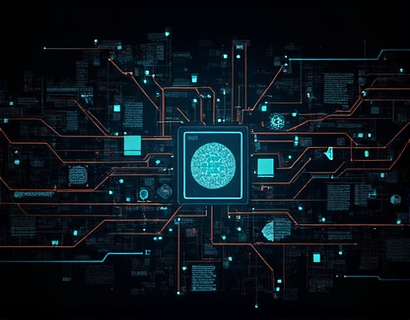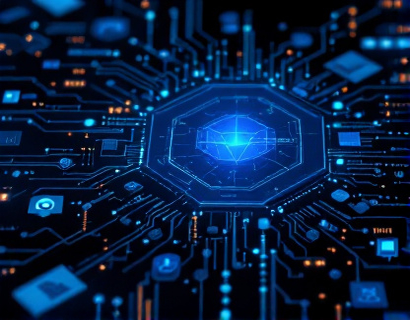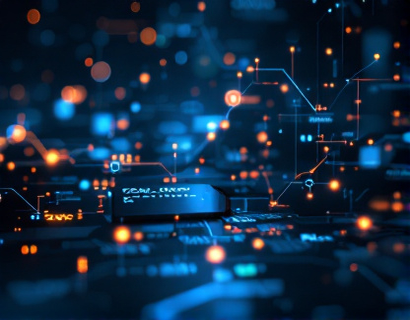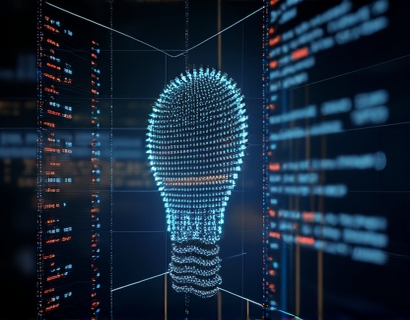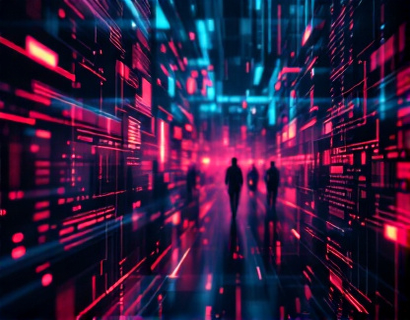Crypto-Driven AI: Transforming Digital Productivity with Next-Gen Tech Solutions
The integration of Artificial Intelligence (AI) and cryptocurrency is ushering in a new era of digital productivity, redefining how we approach daily tasks and workflows. This convergence of technologies is not just a novel concept but a transformative force that is already reshaping industries and empowering tech innovators and early adopters. This article delves into the intersection of AI and cryptocurrency, exploring how these next-generation technologies are collaborating to create seamless, efficient, and innovative solutions for the modern digital landscape.
Understanding the Synergy Between AI and Cryptocurrency
To grasp the full potential of crypto-driven AI, it's essential to understand the fundamental synergy between these two technologies. AI, with its ability to learn from vast amounts of data and perform tasks that traditionally required human intervention, is the backbone of intelligent systems. Cryptocurrency, particularly through blockchain technology, provides a decentralized, secure, and transparent framework for transactions and data management. When combined, AI can leverage the immutable and tamper-proof nature of blockchain to enhance data integrity, security, and efficiency.
The decentralized nature of cryptocurrency ensures that AI systems can operate without the need for centralized authorities, reducing the risk of data breaches and increasing trust among users. This synergy enables the creation of decentralized applications (dApps) that can process and analyze data in real-time, providing insights and automating tasks with unprecedented accuracy and speed.
Enhancing Data Security and Privacy
One of the most significant benefits of integrating AI with cryptocurrency is the enhancement of data security and privacy. Blockchain technology ensures that data transactions are recorded in a way that is virtually impossible to alter or manipulate. This immutability is crucial for AI systems that rely on large datasets for training and operation. By using blockchain, AI applications can access and process data with the assurance that it remains secure and private.
For instance, in the realm of healthcare, AI-driven diagnostic tools can utilize blockchain to securely store and share patient data, ensuring compliance with privacy regulations while enabling seamless collaboration among medical professionals. Similarly, in finance, AI-powered trading platforms can leverage blockchain to execute trades with high levels of security and transparency, reducing the risk of fraud and enhancing trust in the system.
Improving Efficiency and Automation
The combination of AI and cryptocurrency is revolutionizing efficiency and automation in various industries. Smart contracts, a key feature of blockchain technology, automate the execution of agreements based on predefined conditions. When integrated with AI, smart contracts can not only execute tasks but also optimize processes by analyzing data and making intelligent decisions.
In supply chain management, for example, AI can predict demand and optimize inventory levels, while smart contracts can automate the entire process from order placement to delivery, ensuring that each step is executed efficiently and transparently. This reduces delays, lowers costs, and enhances overall supply chain performance.
In the realm of customer service, AI-driven chatbots can handle a wide range of inquiries and transactions, from simple support requests to complex financial operations. By using cryptocurrency, these chatbots can process payments securely and efficiently, eliminating the need for intermediaries and reducing transaction costs.
Empowering Decentralized Marketplaces
The convergence of AI and cryptocurrency is also transforming the way marketplaces operate. Decentralized marketplaces, powered by blockchain and AI, offer a new paradigm for buying and selling goods and services. These platforms eliminate the need for central authorities, reducing fees and increasing accessibility for a global audience.
AI plays a crucial role in these marketplaces by providing advanced matching algorithms that connect buyers and sellers based on specific criteria, such as price, quality, and availability. For instance, a decentralized e-commerce platform can use AI to analyze user preferences and recommend products, while ensuring that transactions are secure and verified through blockchain technology.
Moreover, these platforms can incentivize participation through native tokens, creating a self-sustaining ecosystem where users are rewarded for contributing value. This not only enhances user engagement but also fosters a community-driven approach to marketplace operations.
Fostering Innovation and Collaboration
The intersection of AI and cryptocurrency is not only about enhancing existing processes but also about fostering innovation and collaboration. Developers and entrepreneurs have the opportunity to build on this synergy, creating new applications and services that were previously unimaginable. The open-source nature of blockchain and the vast AI research community encourage collaboration and knowledge sharing, accelerating the development of cutting-edge solutions.
For example, AI-powered tools can assist in the development of new blockchain protocols, optimizing their performance and security. Conversely, blockchain can provide a robust infrastructure for AI applications, ensuring that data is reliable and transactions are secure. This mutual reinforcement creates a virtuous cycle of innovation, driving the digital transformation forward.
Challenges and Considerations
While the potential of crypto-driven AI is immense, there are several challenges and considerations that need to be addressed. One of the primary concerns is the regulatory landscape. As AI and cryptocurrency continue to evolve, regulatory bodies are grappling with how to oversee these technologies to ensure they are used responsibly and ethically.
Another challenge is the technical complexity involved in integrating AI with blockchain. Developers need to possess a deep understanding of both technologies to create effective and scalable solutions. Additionally, the energy consumption associated with blockchain, particularly proof-of-work systems, raises environmental concerns that must be addressed to ensure sustainable growth.
Despite these challenges, the benefits of crypto-driven AI are compelling, and the tech community is actively working to overcome these hurdles. As the ecosystem matures, we can expect to see more robust and user-friendly solutions that harness the full potential of this powerful combination.
Conclusion
The integration of AI and cryptocurrency is a game-changer for digital productivity, offering unprecedented opportunities for innovation and efficiency. By leveraging the strengths of both technologies, we can create a future where workflows are seamless, data is secure, and tasks are automated with intelligence. For tech innovators and early adopters, this is an exciting time to explore and contribute to this evolving landscape, shaping the next generation of digital solutions.











